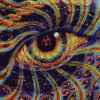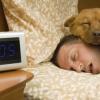Instead of going the prescription Serotonin Reuptake Inhibitor route which is rife with negative side effects, I would recommend over the counter SAM-e and 5-HTP three times a day.
I'm sure the recommendation is well-intentioned, but depression isn't that simple. Not all depression has anything to do with serotonin reuptake, and taking a serotonin supplement doesn't fix the type of depression that does involve reuptake.
I'm sure everyone here is full of zeal at sharing the results of their chemical binges, but bear in mind that you're not a physician (or, if you are, you're being careless with your advice).
If you're going to give people treatment advice for serious medical conditions, I would hope you have the decency to give them all the relevant warnings associated with the substances you are recommending. It is only ethical.
Let me fill in the blanks, in the interests of safety and completeness:
5-hydroxytryptophan (5-HTP) is the chemical precursor to serotonin (as tryptophan is the chemical precursor to niacin (which is why many of you get strange and abnormally lucid dreams after Thanksgiving dinner)) and is only useful in depression treatment as a way to boost serotonin. There's nothing more I need to clarify about it. Read on, though, to see why this won't necessarily do anything for your depression.
S-adenosylmethionine (SAMe) is a methyl donor that naturally occurs in your body. When the SAMe is done donating its methyl group it has decomposed into homocysteine, as AIGuy mentioned. What he neglected to mention is that homocysteine is highly toxic. That means it is necessary to also take B6, B12, and folic acid supplements with SAMe so the homocysteine can be reintegrated into the methylation cycle. In short, taking SAMe supplements isn't safe just because the body naturally produces it. High homocysteine levels have been shown to cause depression.
That means that taking SAMe supplements can potentially make your existing depression worse.Depression is not caused by a SAMe deficiency, so it's not necessarily logically sound to try to treat depression with SAMe supplements. To be sure, there are studies that have showed that SAMe can treat depression, but, as yet, the exact nerochemical mechanism of this is unknown. Similar to Dramamine being used as an antiemetic, we feel justified in putting the chemical on the open market without actually knowing how it works. (The fact that Dramamine prevents nausea is actually a side effect. Dramamine is an antihistamine very closely related to Benadryl.)
No study on SAMe has ever shown it to be more effective in treating depression than a prescription antidepressant, and many studies have shown it to be significantly less effective. There is no dispute, however, that SAMe has far less side effects associated with prolonged use than any prescription antidepressant, and it has no side effects associated with sudden discontinuation. Note that SAMe should not be used by those with bipolar disorder, as it will only make your condition worse. (Bipolar disorder is characterized by periods of mania followed immediately by periods of severe depression. In bipolar disorder, the depression is a direct result of the mania, and SAMe can cause a manic episode.)
Everything I have said so far about SAMe being useful to treat depression has pertained to depression that is due to serotonin reuptake causing norepinephrine levels to fall. It is not necessarily so that serotonin reuptake is the mechanism by which YOUR case of depression depletes your norepinephrine. If it's not, SAMe and 5-HTP won't do jack for your depression (although they very well could give you a slight ecstacy-like high for a time). It is almost equally likely that there's nothing wrong with your serotonin levels at all. As I said before, depression isn't that simple. If it were, you wouldn't need a doctor to diagnose and treat it.
I realize I'm a newcomer to these fora and that this post seems harsh (and probably won't be received well as a result), but the reason that I was compelled to register and make this post is because I am also deeply interested in various nootropics, and I would like to see more factual data about those nootropics in this forum. I consider it to be extremely careless for people here to presume to diagnose someone they've never met with depression, let alone recommend a treatment for depression that has the capacity to make the condition worse. No, I don't moderate or administrate the forum and thus have no control over what is and is not tolerated (and I wouldn't have it any other way, in that respect), but when you start rendering amateur medical advice it really stops being a matter of rules and more a matter of ethics. Diagnosis and treatment options are a matter to be settled with medical doctors, in meatspace, after having been thoroughly examined. "What nootropic can potentially increase my motivation" doesn't, in my understanding of the English language, mean the same thing as "Do I have depression and if so what should I take for it?"
I came here because I want factual data and the citations of specific studies that support that data, not because I wanted to read the post of someone who read a leaflet once about 5-HTP and SAMe being used to treat depression, and as a result feels qualified to recommend them to anyone in lieu of prescription medication. That may not be the reality of the situation, but that's how I see it.
Oh, and as for the topic at hand, I would have to reinforce BJKlein's point. "Motivation" is not something that can be easily quantified, and as such no definite supplement can be recommended. It may be that the "Get Smart" formula BJKlein suggested will work for you, but I would favor a more simplistic approach first:
Many people feel a lack of motivation during the day because they have poor sleep habits. Don't get more or less than 7-8 hours of sleep a night. You may want to eat an apple when you wake up: it helps a great deal. Maintain a regular sleep schedule, and stay off your bed unless you intend to go to sleep. If you consume caffeine regularly, discontinue. Don't intake too much sugar in the first 12 hours you are awake. Doing (or not doing, as is appropriate) any one of these things will probably give you significantly more motivation, but obviously adhering to all of them is most likely to benefit you.
If your lack of motivation can be directly linked to something you consume (not that I would assume you smoke cannabis, or anything...), it goes without saying that the first thing you should do is discontinue that substance, notwithstanding prescription medication. If you think a prescription is causing you lethargy, tell your doctor.
Nootropics and CNS stimulants are not a substitute for proper sleep and dietary habits, and should not be used as such.
And, as always, you should ultimately do your own research and make up your own mind.























































